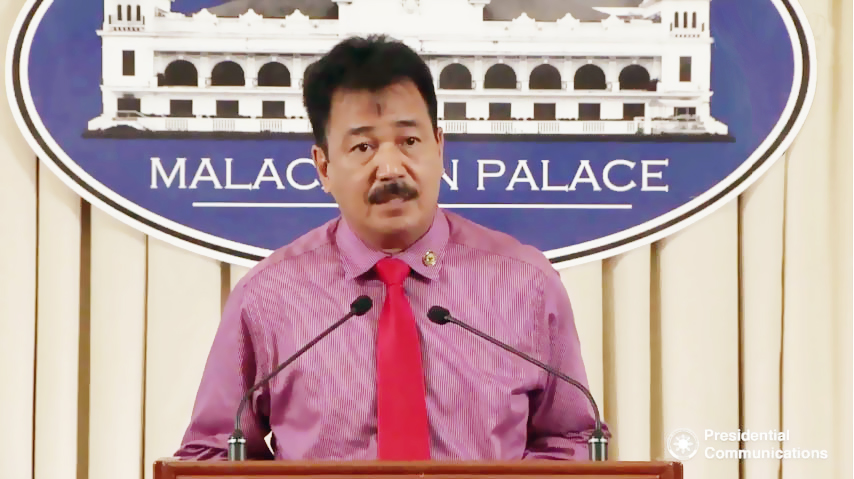
Filipino students can now expect the full implementation of the recently signed law granting free tuition in all state-run universities and colleges in the country by June 2018, the Commission on Higher Education (CHED) assured on Thursday, August 10.
In a press briefing in Malacañan, CHED Commissioner Prospero De Vera III announced that the first meeting for the drafting of the Implementing Rules and Regulations (IRR) for the Free Tuition Law already took place on Wednesday, August 9.
The Commissioner said they hope to finalize the IRR at the soonest possible time, in time for the full implementation of the law by Academic Year 2018-2019.
“The staff of CHED, of TESDA (Technical Education and Skills Development Authority), of DBM (Department of Budget and Management), of DOST (Department of Science and Technology), started working last night,” De Vera said.
“We gave them marching orders to finish it hopefully within the week, so that the Commission can go over it, the other agencies can go over it, and hopefully sign it within 15 days, if possible,” he added.
Under the measure, students enrolled or who wish to enroll in state-run universities and colleges nationwide will no longer have to pay for their tuition and other standard miscellaneous fees, as enumerated in the law.
Students enrolled in 112 State Universities and Colleges (SUCs), 16 local government created universities evaluated by CHED, and all state-run technical-vocational institutions nationwide will be covered by the measure during the first year of implementation.
For students belonging to poorer households, De Vera said the measure will provide additional subsidy for those belonging to the lowest income deciles. A student loan fund will also be created for them, to be administered through various government financial institutions.
These additional benefits can be availed by enrollees of both public and private institutions.
As for the funding for the program, De Vera said they are already set to finalize the budget for the new law.
He said CHED is in talks with other government agencies in pooling together funds to implement the program in 2018, which is pegged to reach more than P20 billion.
He said the government plans to tap funds from existing scholarship and financial assistance programs of various departments, including CHED, DOST, and the Department of Agriculture.
“So we’re looking at the utilization of money in the current scholarship programs and see how much of these can be put into the allocation for 2018,” De Vera said.
“And then together with the House of Representatives and the Senate, we will look for other funding sources from the 2018 National Expenditure Program,” he added.
Meanwhile, the Commission is also looking to ensure that tighter admission and retention policies are in place in state-run institutions to control the possible massive transfer of students from private to public schools.
“So, we will be telling… SUCs and the LUCs to make sure that their admission and retention policies do not adopt an open admission,” De Vera said, adding that some SUCs have already adopted a no-transfer policy for second, third, and fourth year enrollees.
“We will control that by pegging the — the subsidy from government on a percentage of the actual or the regular increase in the enrollment of SUCs and LUCs using 2015 data as a basis,” he further said.
In the same briefing, the CHED Commissioner announced that it has already lifted its moratorium on the off-campus activities of public and private higher education institutions (HEIs).
CHED issued the ban in February following the tragic bus accident in Tanay, Rizal that claimed the lives of 15 students from Bestlink College of the Philippines.
De Vera clarified that it will be imposing stricter and tighter regulations on all off-campus activities among HEIs to ensure the safety of students during such trips.
“So all the activities that will require students to go out of their school, we have tightened the regulations and we’ve issued the CHED Memorandum Order No. 63 to cover now all public and private higher education institutions,” he said.
The memorandum mandates HEIs to be held accountable whenever they send students outside the campuses, and requires them to provide insurances to the students.
It also directs HEIs to conduct a proper review of the franchise and road-worthiness of vehicles that will be used in the activities.
Abella: fewer Filipinos jobless in 2017
During the same press briefing, Presidential Spokesperson Ernesto Abella announced that joblessness in the country continues to drop from 25.1 percent or 11.2 million in December 2016 to 22.2 percent or an estimated 10.5 million in June 2017.
Abella said the development is an affirmation of the Duterte administration’s gains towards “a more robust, inclusive and sustainable economy.”
He said such gains translate to “more jobs and more money in the pockets of more Filipinos leading towards a comfortable life for all.”
Meanwhile, Abella assured the safety and protection of migrant Filipino workers currently in Guam following North Korea’s airstrike threat on the US territory.
Abella said the government is prepared with contingency plans in case the North Korean government pursues its threat to launch missiles aimed at the waters off the coast of Guam.
“Well, as far as I know, especially regarding Filipinos in Guam, the embassies and consulates in general — including the one in Agana, Guam — have contingency plans which are regularly updated to enable them to respond to emergencies,” Abella noted.
“So in other words, it’s pretty automatic that if there are any threats, especially for those who are in affected areas, they have contingency plans for those things,” he added.###PND

